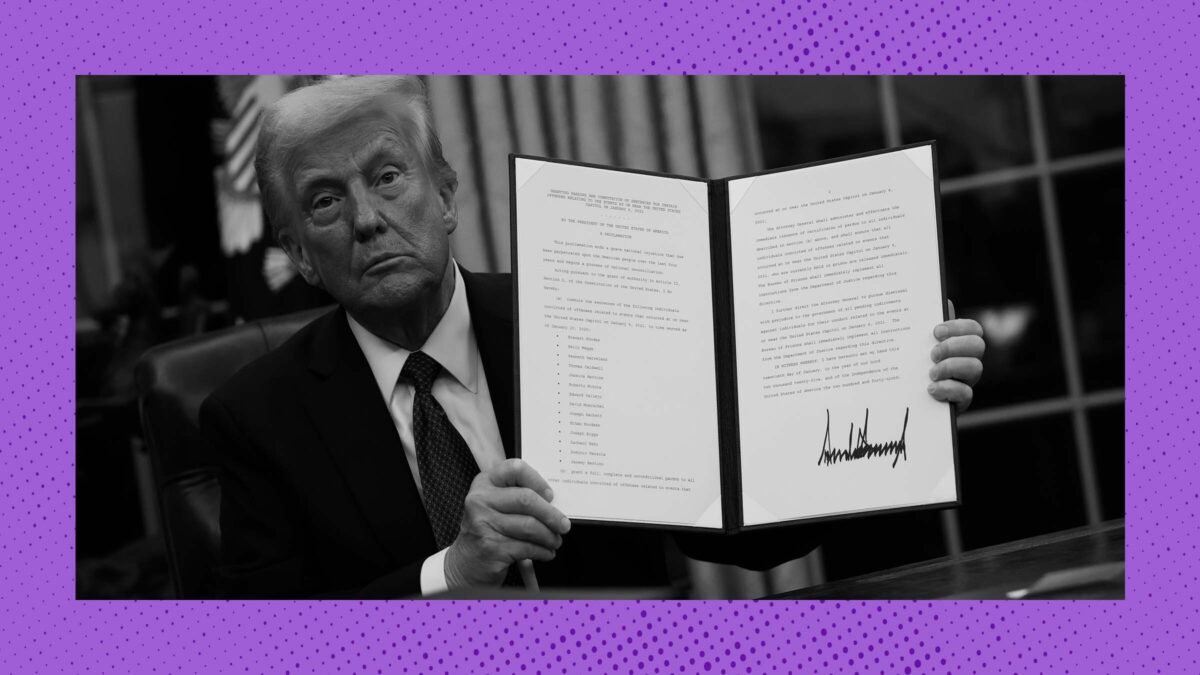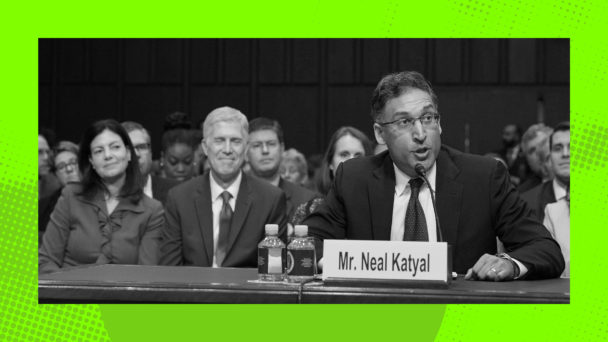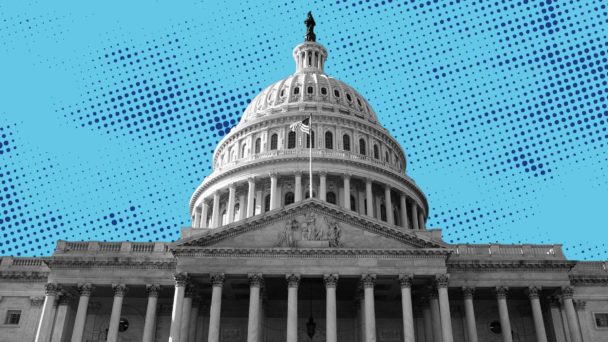Noah Feldman, the liberal Harvard Law School professor who specializes in constitutional law and being wrong in public, has dedicated his latest Bloomberg column to President Donald Trump’s first two weeks in office, which Feldman analogizes to a “constitutional stress test.” His takeaway is that people feeling alarmed about the ongoing disintegration of the federal government shouldn’t lose too much sleep, because in our vaunted system of checks and balances, courts can be counted on to “swing into action and block Trump’s executive overreach.”
Feldman acknowledges the dizzying pace of Trump’s cartoon-villain illegality—the birthright citizenship executive order, the attempt to “freeze” billions in federal spending, and the unilateral shuttering of the U.S. Agency for International Development. Nevertheless, Feldman urges weary readers to take heart, since “so far, Trump’s latest version of constitutional quasi-chaos hasn’t swamped the system.” I want to emphasize that Trump took the oath of office fourteen (14) days before this column was published.
Throughout, Feldman makes the same basic mistake made by many law professors moonlighting as legal pundits: explaining that Trump’s actions are no cause for concern because someday, somewhere, an appeals court might declare them illegal. It is the product of a profession that treats law as a system of objective rules that yield clear answers on which all gentlemen of principle will agree, instead of a fight for political power in which the people hailing the system’s integrity never realize they are getting their asses beat.
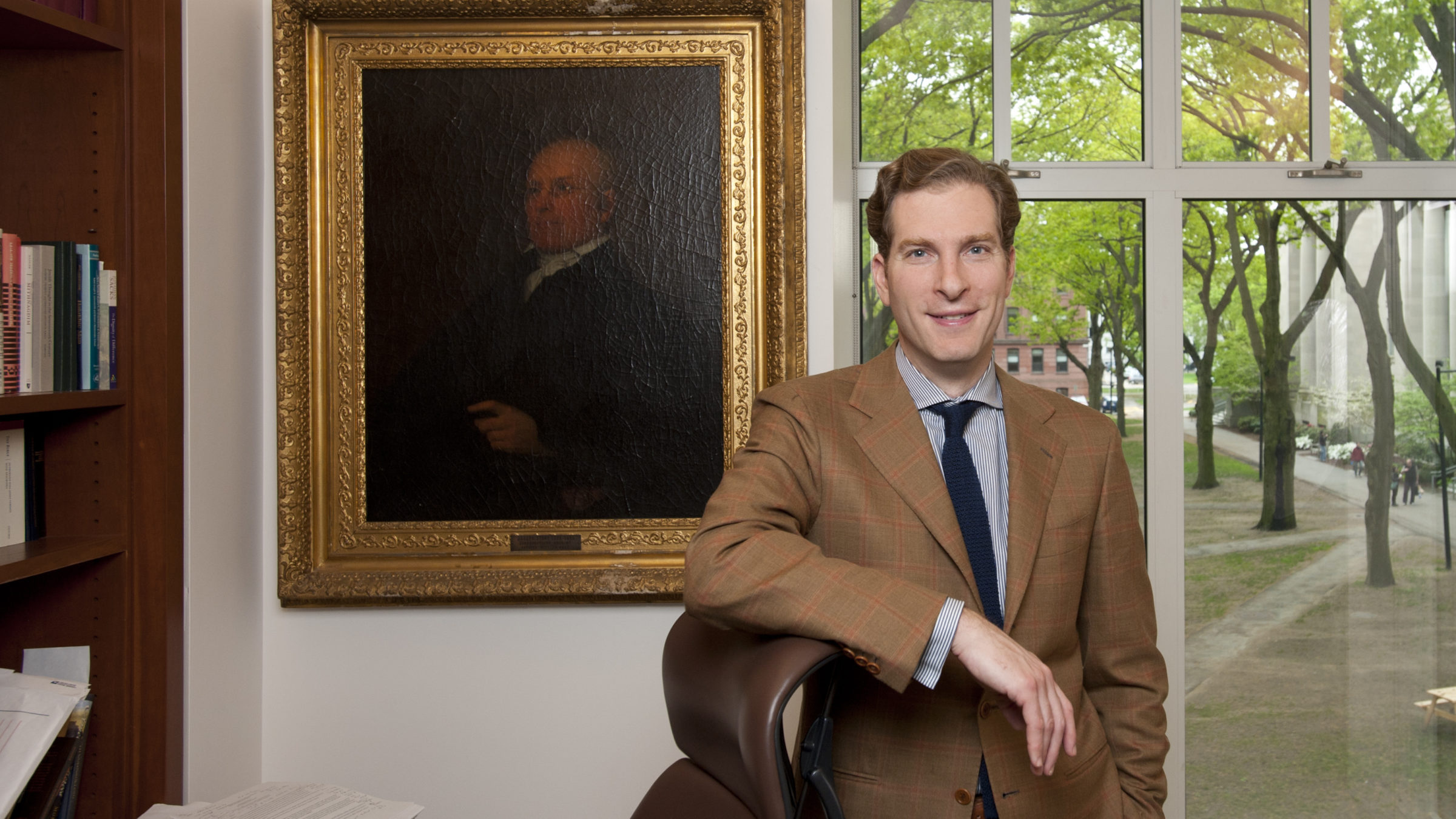
Feldman in his Harvard Law School office, 2011 (Photo by Rick Friedman/Corbis via Getty Images)
Feldman first discusses the executive order ending birthright citizenship—no big deal, he assures readers, because under the Constitution, Trump actually can’t do that. “A court has already said so, blocking the order from going into effect,” Feldman writes. Even if Trump takes this fight to the Supreme Court, he continues, the justices are “not going to announce a brand-new, made-up interpretation of the Fourteenth Amendment.”
I am not sure a handful of temporary restraining orders should inspire much confidence in the indomitable rule of law when the Trump administration is ignoring some of these orders and fighting the rest. Feldman’s faith in the Supreme Court here will also be surprising to anyone familiar with the Supreme Court, which has spent several years rolling out all kinds of “brand-new, made-up interpretations” of settled law in order to further the conservative agenda. As evidenced by the saga of Trump’s first-term Muslim ban, which the Court upheld after the White House finally put out a version that Anthony Kennedy decided he could vote for without feeling ashamed of himself, the justices have a very recent history of extending the benefit of the doubt to their favorite president. At this stage, declaring anything to be definitely “beyond Trump’s power” is analogous to Jim Nantz declaring the San Francisco 49ers the winners of last year’s Super Bowl because they scored the first points.
Feldman’s other analysis is equally glib: A court blocked the spending freeze “within hours,” he says, after which Trump “folded and lifted it.” USAID is safe, too, Feldman explains, because federal statutes require presidents to spend money appropriated by Congress: “If Trump doesn’t follow the law regarding USAID, there will be more lawsuits, which he will lose,” he writes. Incredibly, the words “Elon Musk” appear nowhere in Feldman’s column, perhaps because attempting to square his thesis with the fact that an unelected billionaire is hijacking a different agency every day would require him to write several additional paragraphs.
Again, two weeks into Trump’s term, expressing certainty about any prediction feels a tad premature. But setting that aside, Feldman never considers the real-world impact of Trump’s actions on people who are not tenured law professors. If lawyers eventually manage to save USAID, that result will not undo the disruption for thousands of USAID employees who are packing their homes, pulling kids out of schools, and trying to figure out on a few days’ notice whether they can bring their pets. If a federal court someday finds that Trump’s first attempt to seize the federal budget violates some law or another, it will not make people who depend on that money any less afraid that a new freeze with cursory modifications will land before a judge willing to rubber-stamp it. If the Supreme Court indeed affirms that the Constitution protects birthright citizenship, its opinion will not retroactively spare millions of U.S.-born children of undocumented people from living in fear until then, and probably well after, too.
Last week, Secretary of State Marco Rubio announced temporary exceptions to Trump’s spending cuts for programs that provide “life-saving humanitarian assistance.” But by that time, many had laid off workers or shut down entirely, unsure how much longer they would be allowed to exist. In Thailand, sick people were told to leave refugee camps; in Sudan, hundreds of soup kitchens closed in a city “on the edge of starvation”; in Uganda, aid workers had to stop administering antiretroviral drugs to newborns, resulting in about 40 preventable HIV infections per day. If after months or years of litigation some judge holds that, no, the Constitution does not allow presidents to delete agencies they don’t like, great, but the children denied food and medical care in the meantime will not be any less dead. Under the circumstances, Feldman’s suggestion that we “manage our anxiety” is not especially helpful guidance.
We can keep going: As you read this sentence, crops are rotting in fields because undocumented farm workers are afraid to show up. Trans people who want to flee the country do not know for how much longer their passports will be valid for travel. Hundreds of thousands of civil servants pondering Musk’s dubious “deferred resignation” offer have been trying to decide whether to quit their jobs by Thursday afternoon. Feldman does not consider how any of these people are faring under our “constitutional stress test,” because he is a handsomely-compensated academic for whom the only consequence for being wrong about life-or-death questions is someone like me writing a blog post like this.
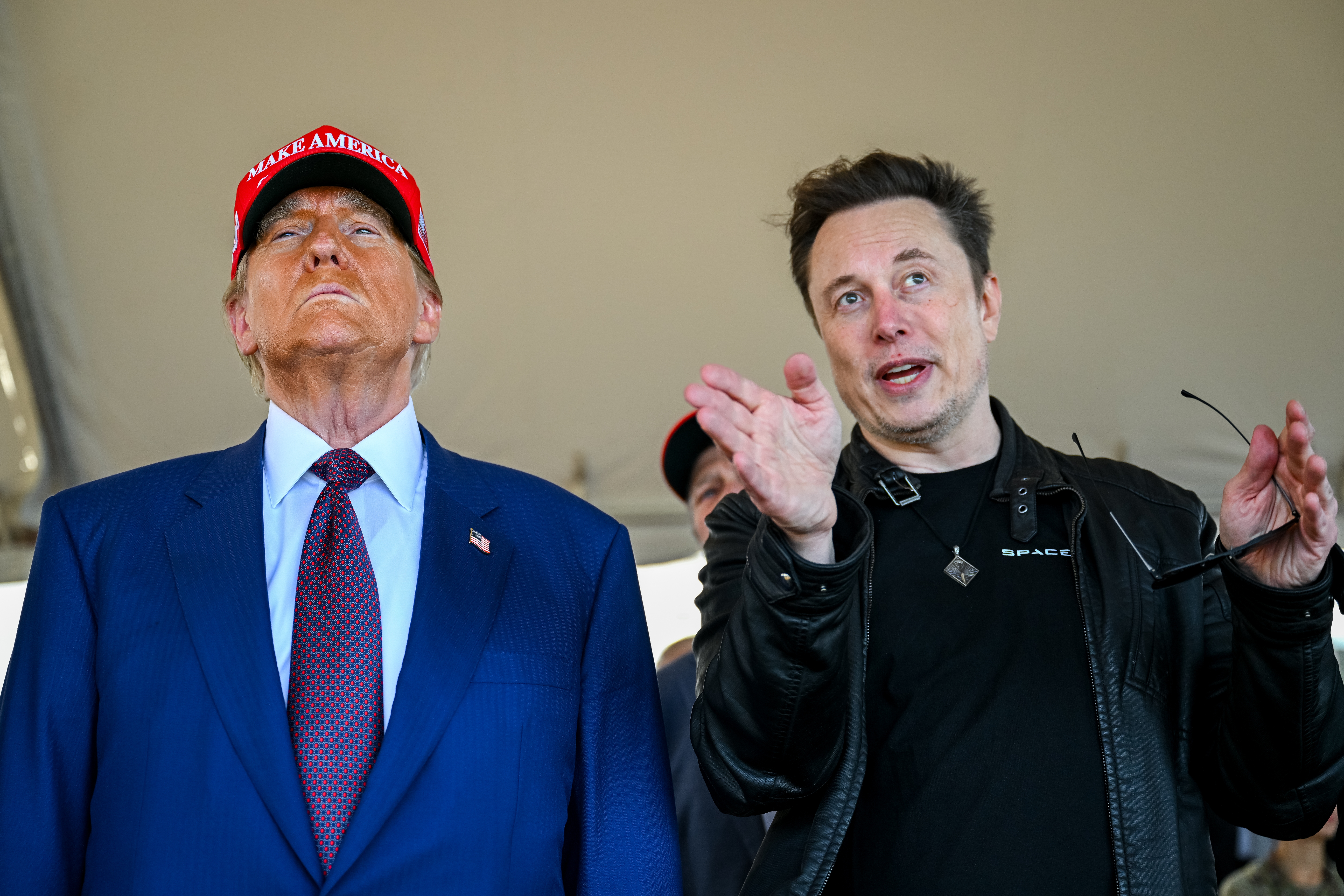
(Photo by Brandon Bell/Getty Images)
The discussions of other purported constraints on Trump are even less reassuring. Feldman says it is “certain” that Trump “can’t sustain this rhythm forever,” since “at some point, Americans will demand that he start doing his main job, which is making the executive branch function.” Trump is also “unlikely to defy a judicial decision,” Feldman argues, since the Supreme Court “won’t tolerate direct defiance of the authority of the judiciary.”
But as Feldman, a constitutional law professor, is presumably aware, in the years since Trump built the Court’s six-justice conservative supermajority during his final days in office, all the legal system has done is make clear to Trump that he is the Constitution’s special boy. The Insurrection Clause did not prevent him from running for president. The Appointments Clause did not permit prosecutions of his violations of the Presidential Records Act. Nebulous principles of separation of powers entitled Trump to immunity for his “official acts,” which is more or less defined as any acts for which Clarence Thomas does not think Trump should be liable.
I am not saying that Trump is an untouchable god-king forevermore beyond the reach of the law, or that there is no point in trying to stop him from breaking it. I am simply pointing out that the next time the Court holds Trump meaningfully accountable for anything will be the first. Law professors watching democracy disappear before their eyes should be using their platforms to remind people how fragile the rule of law really is. Instead, Feldman is insisting that a constitutional system that is currently on fire will magically emerge unscathed, and that if you think about it, the system isn’t actually on fire in the first place.
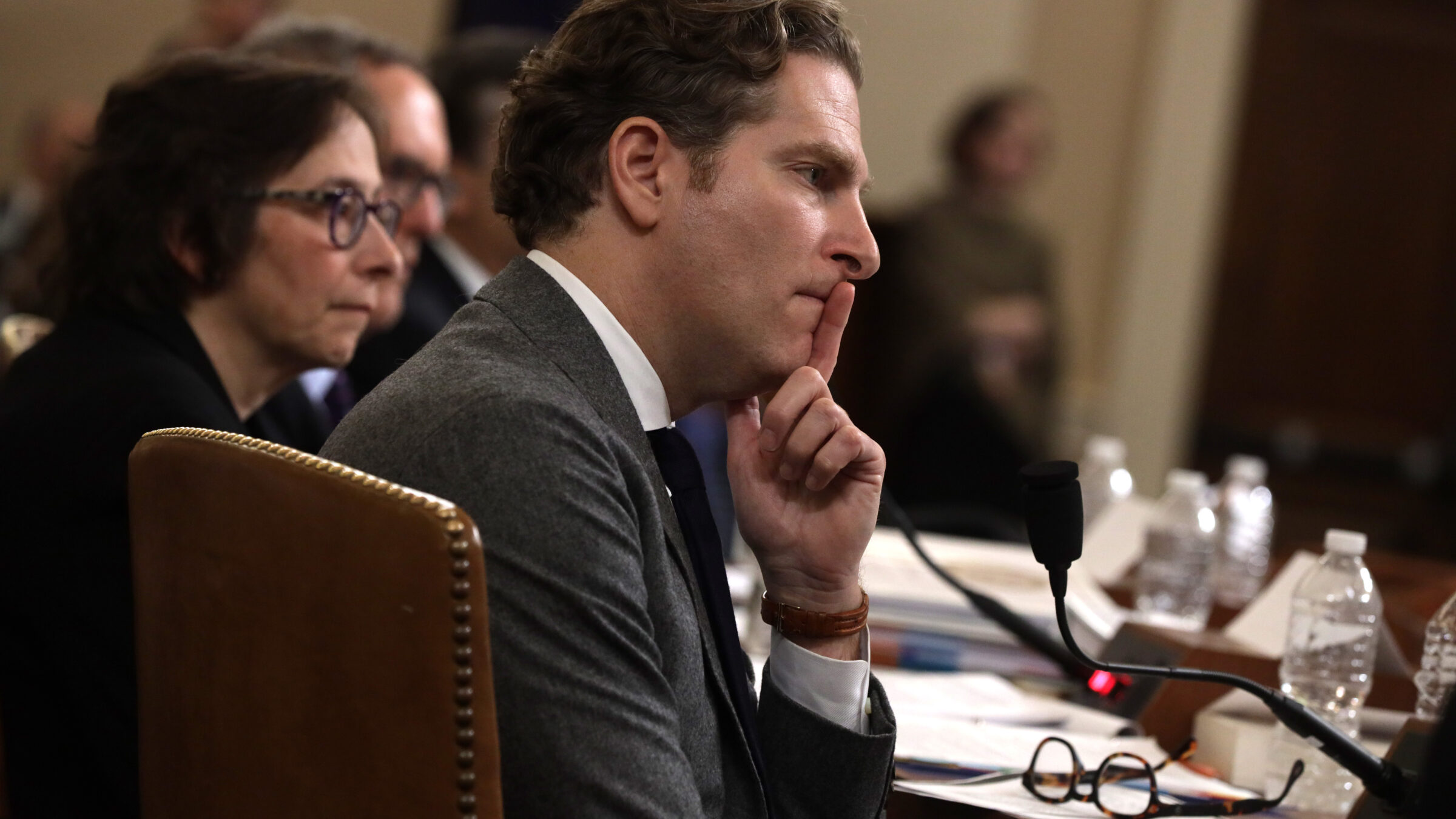
(Photo by Alex Wong/Getty Images)
It is probably right that if grocery prices skyrocket and Social Security payments stop and listeria outbreaks overwhelm municipal sewer systems, people will get upset. But it is not at all clear why the pace of Trump’s lawbreaking will inevitably slow down, as Feldman asserts, let alone how shifts in public opinion would convince a lame-duck president with the entire Republican Party under his thumb to abandon culture-war bigotry and focus on kitchen-table issues. The cumulative effect of Trump’s power grabs—“swamping the system,” in Feldman’s words—is to generate so much chaos and uncertainty that it becomes impossible for opponents to even conduct triage. The notion that cooler, rational heads will prevail once the aspiring autocrat tuckers himself out is a fantasy that only makes sense if your media diet consists exclusively of West Wing reruns on Peacock.
I am also not sure what Feldman’s prediction that the Court will refuse to “tolerate direct defiance” of its authority is supposed to mean for the frontline victims of the violence that Trump’s defiance would entail. The judicial branch has no army to enforce its decisions, and depends for its relevance on the other branches’ willingness to submit to its authority, but all the Court has done of late is weaken its power to check the executive branch ever again. John Roberts is a 70-year-old lawyer who wears black pajamas to work. If Trump decides that this time around, he’s going to dispense with angrily tweeting about the Court and simply ignore edicts he finds inconvenient, what the fuck is John Roberts going to do about it?
Feldman wraps by urging everyone to “try to keep breathing,” which I guess is reasonable advice in light of the alternative. But the legal system has never been enough to stop Donald Trump from inflicting pain and suffering, because its rules are only as strong as the willingness and ability of people in power to enforce them. To return to Feldman’s stress test analogy, when the president has made up his mind to stretch the constitutional system to its breaking point, no period of rest and recovery is going to bring everything back to normal. Someone is always going to get hurt. It just might not be the people law professors are thinking about.
